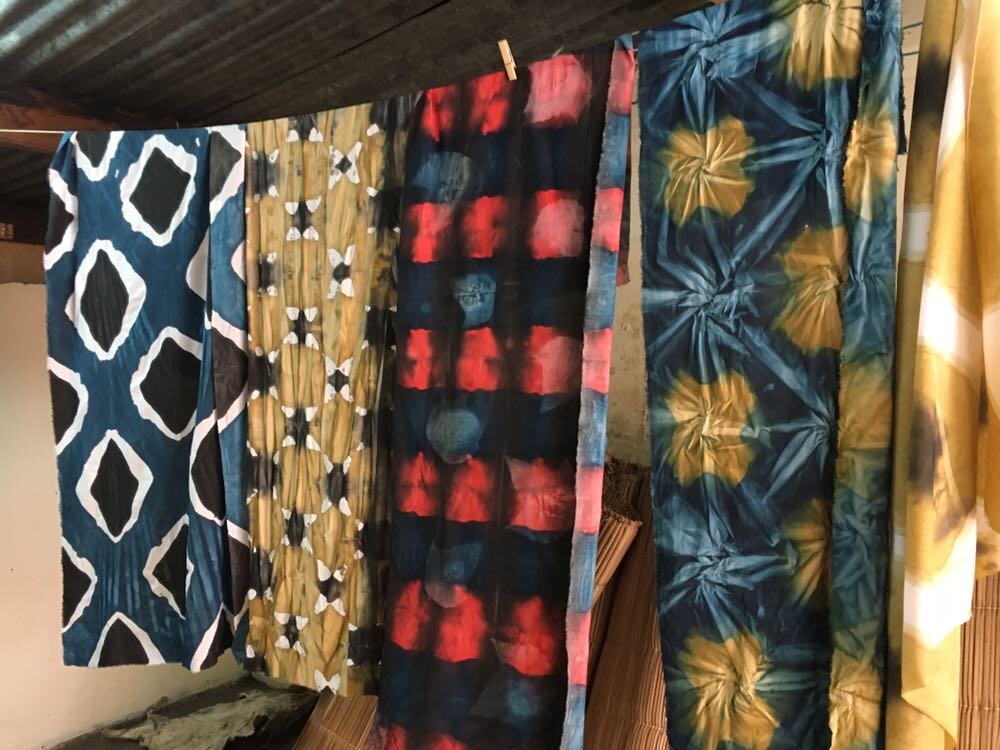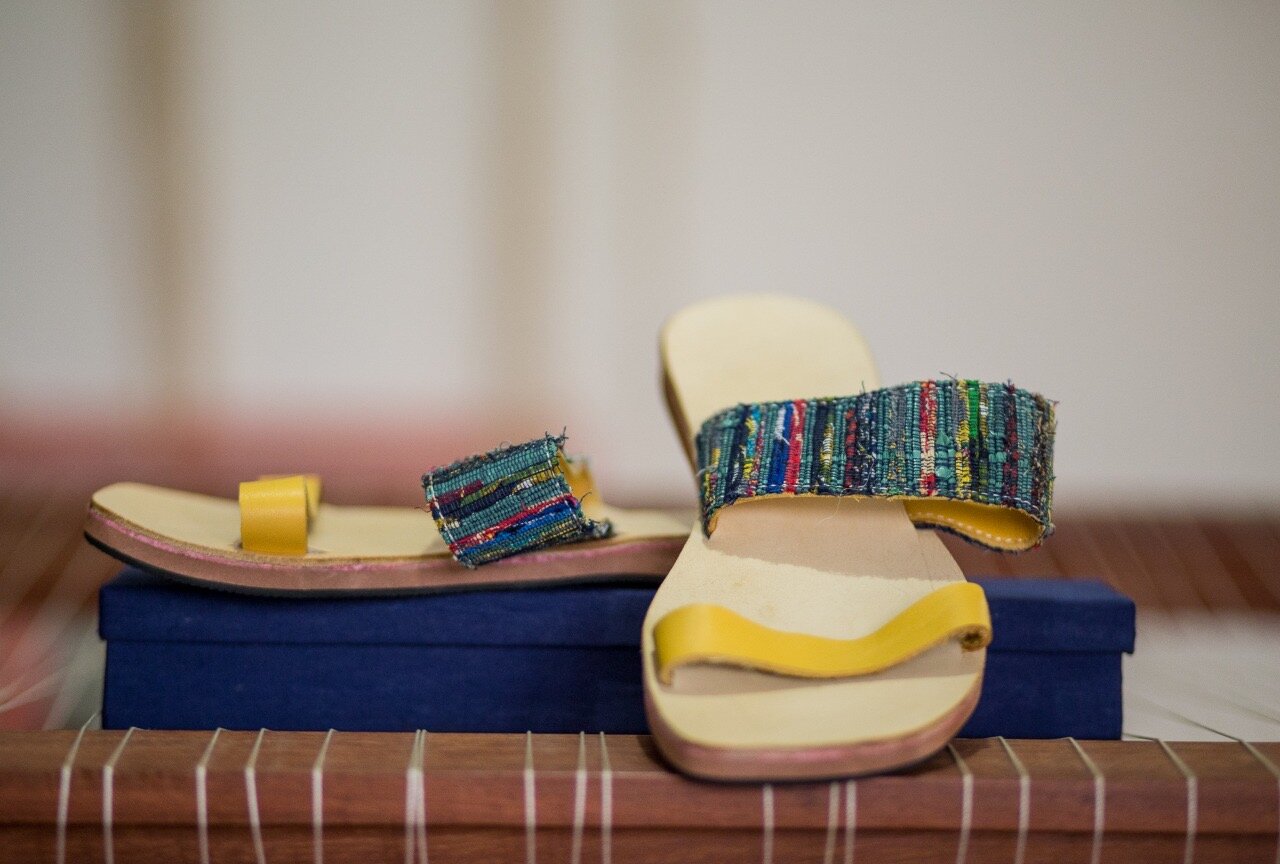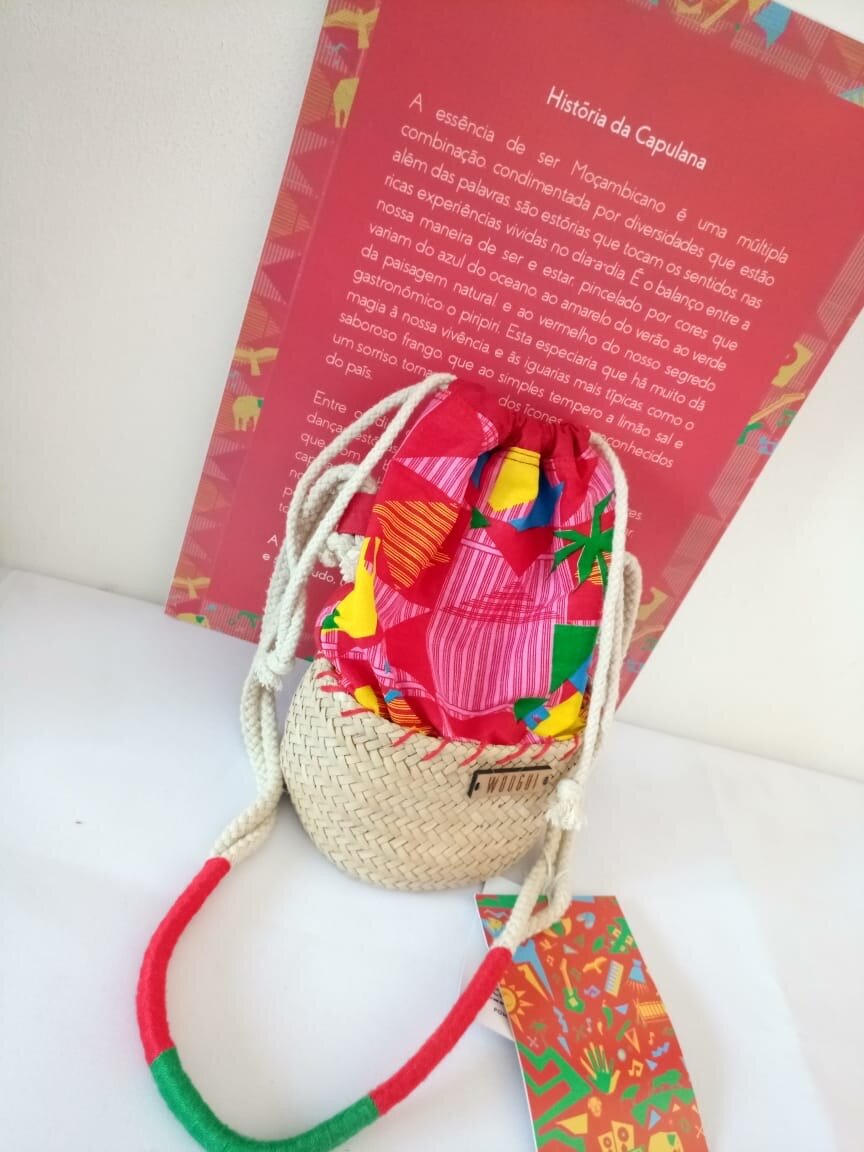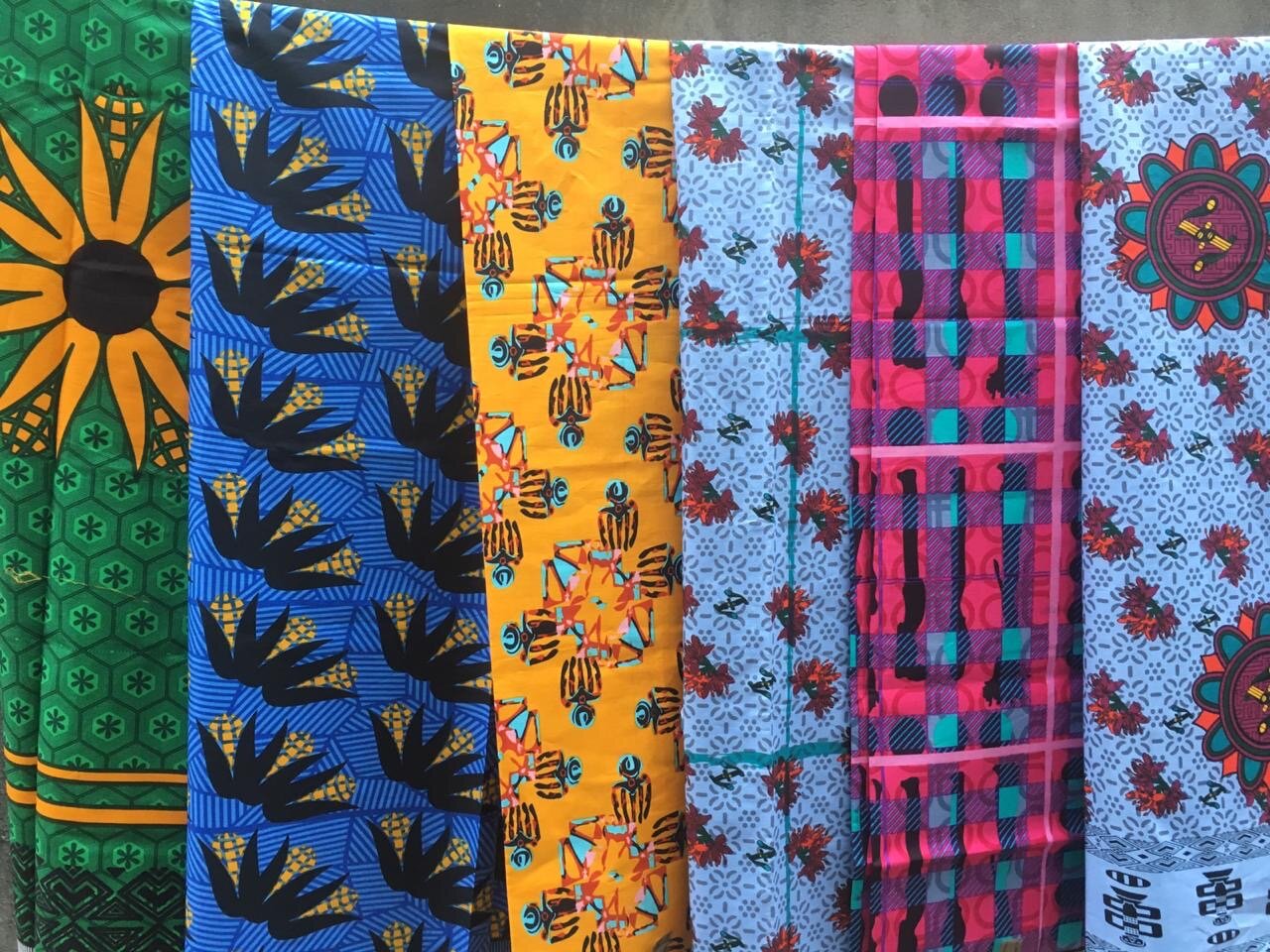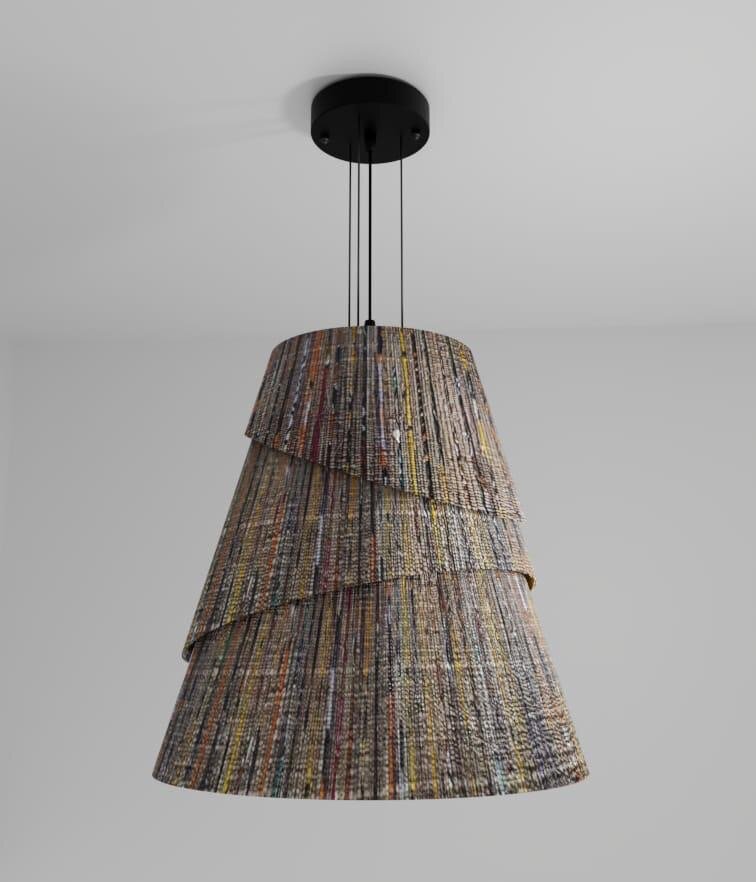LIONESS WEEKENDER COVER STORY
Djamila Machava De Sousa and Wacy Zacarias, co-founders of Karingana Wa Karingana in Mozambique, introduce Capulana to the world.
Mozambique is famous for its Capulana, but one company is taking this unique textile to whole new design levels. Karingana Wa Karingana, co-founded by Djamila Machava De Sousa and Wacy Zacarias, are building a powerhouse brand that combines traditional design and cultural values presented in a modern context.
LoA talked all things capulana with co-founders Wacy and Djamila this month and found out more about their aspirations for the business and brand going forward.
What does your company do?
Karingana wa Karingana is a Mozambican Textile research design and development brand founded in 2015. Karingana’s vision is to change the narrative of the African textile market through textile story telling. Our brand emerged as a need to have African textiles created by Africans, respecting the local customs and rescuing the textile tradition that existed for several centuries along the continent, using current technology and also in a variety of materials and media. When creating the textiles for our clients we tell their story translating it into a visual narrative that can be communicated in a multitude of ways. The company also offers research and development solutions related to textiles and development of new materials using local resources and the principles of circular design.
What inspired you to start your company?
When Wacy and Djamila met in 2014, they realized that they had been asking the same questions around African textile industry. Mainly about the fact that the most well known African textile, which is Ankara, wax print or capulana in Mozambique, is in fact not very African, but an imported textile inspired by Indonesian batik and Indian saree. This led to further research on what were the traditional textiles in Africa, and many indigenous and artisanal production techniques. They felt compelled to change the narrative of the African textile market by making sure that they told textile stories and brought innovation to an otherwise dying industry.
“Our prints tell stories in a visual way as our ancestors have been doing by weaving, dying, embroidering, and painting for so many centuries. We create meaningful and impactful prints that can inform our client’s products, image and online presence. ”
Why should anyone use your service or product?
At Karingana we believe in changing narratives and telling meaningful stories. We bring a personal touch and a special combination of tradition and cultural values applied to a modern context. Our prints tell stories in a visual way as our ancestors have been doing by weaving, dying, embroidering, and painting for so many centuries. We create meaningful and impactful prints that can inform our client’s products, image and online presence.
Recently we launched our "capulanas" (also called in other parts as Ankara, Kitenge, African fabric). These are the first "capulanas" designed in Mozambique after the textile factories closed down in the 80's. We want to contribute to society, the value of African design and culture as something unique with the same standard as any other form or design in other parts of the world.
Tell us a little about your team
Wacy Zacarias and Djamila de Sousa founded the company, and for a few years they were the only ones working on this project. Now there are 5 women working full time and one working part time. Marlene Magaia is a young lady that just started her degree in business administration and she helps us with administration and day-to-day work, Jamila Zacarias is also in administration and HR, Ines Elias works in production and Bruna Fondo who works in Communication. Wacy is a designer, visionary and coordinates with the creative department and PR, while Djamila is more “hands on and rationale , so she deals with production and liaises with the clients. Together, Wacy and Djamila participate in the creative and strategic processes of the business, brainstorming together and then each executes the different tasks.
Share a little about your entrepreneurial journey. And, do you come from an entrepreneurial background?
Djamila found her entrepreneurial inspiration from her mum’s sisters who have been in different areas of fashion and beauty for many years. Her mum also started her journey in the agricultural sector a few years ago. Her first experience with business was in high school when she started a bijou brand with four other friends. They started selling at fairs and were one of the first to do that type of work then. After that she had one or two small entrepreneurial projects before she started with Karingana wa Karingana.
Wacy found her entrepreneurial inspiration from her grandmother who was a seamstress and her mother who owned a beauty salon. Wacy herself founded the womenswear brand woogui in 2008, which later became a sustainable accessories brand. Her entrepreneurial journey continued when she and Djamila created Karingana in 2015.
In the first year of business they did a lot of brainstorming, studied the market and organized a business model. Since then they have been working hard to implement the million ideas they have and to adapt to a very unstable and mutating market. Many things in line with global trends have been harder to implement in Mozambique because people are not ready and the ecosystem is deficient.
Along the way they had to take a few steps back and rethink how to propose ideas to suit the local market. For example, they initially offered the service of printing customized designs in different materials. But because they do not produce textiles nor have companies printing textiles they had to import from South Africa, which made the prices very high for the local clients. Now with the launching of capulanas they are getting more people to see how our prints translate to textiles.
They had the opportunity to work with some companies from Mozambique as well as international companies for custom print designs and it has been a great experience. They get to tell their stories through our perspective and style and the learning that comes from that creative process also informs us on how we operate other aspects of the business. There are many opportunities and potential in Mozambique but there is a lot of work to be done to make a functioning ecosystem work in order for the creative companies to strive.
“At Karingana we believe in changing narratives and telling meaningful stories. We bring a personal touch and a special combination of tradition and cultural values applied to a modern context.”
What are your future plans and aspirations for your company?
We hope that Karingana will become a major player in the African Textile market, and we are definitely filling a gap in that market. In Mozambique alone at least 1 million people buy capulana per year. In Africa that is more than 50 million and in the Diaspora 20 million. We are targeting 15% of market share which is worth 250 million USD. To make that happen we are currently setting up the first African textile innovation lab in Maputo, a space that will allow us to experiment, research, develop new materials and textiles using the circular design principles.
What gives you the most satisfaction being an entrepreneur?
Our team loves challenges, so doing the impossible or what other people say is impossible excites us, but mostly we love the fact that we have to find a way to do what we love. It has to be financially viable for us to keep doing it, but we are committed to our dream, so it will become viable, we have no doubt about that. We are also very much driven by the impact we can create with our work in the communities that we work with. We also like the freedom and challenge of coming up with solutions for our community, as we work towards changing the narrative of the African textile industry.
What's the biggest piece of advice you can give to other women looking to start-up?
Have a business that can create meaningful impact, and don’t give up.
Find out more
FACEBOOK | TWITTER | INSTAGRAM | PINTEREST | YOUTUBE | EMAIL info@karinganawakaringana.com
Why LoA loves it….
Businesses and brands that go the distance tend to share something in common. They are driven by founders who are passionate about what they do, but who importantly understand how to deliver a unique and quality customer experience. In Mozambique, Djamila Machava De Sousa and Wacy Zacarias are great examples of women entrepreneurs who are taking their inspiration and raw material from something that is intrinsic to the country, but who are making it their own through both a strong aesthetic and a good grasp of market dynamics. It has been wonderful to see Karingana wa Karingana go from strength to strength over the past few years, and to now see it poised to move to the next brand building level. Definitely a company with a bright future ahead of it. — Melanie Hawken, founder & ceo of Lionesses of Africa





